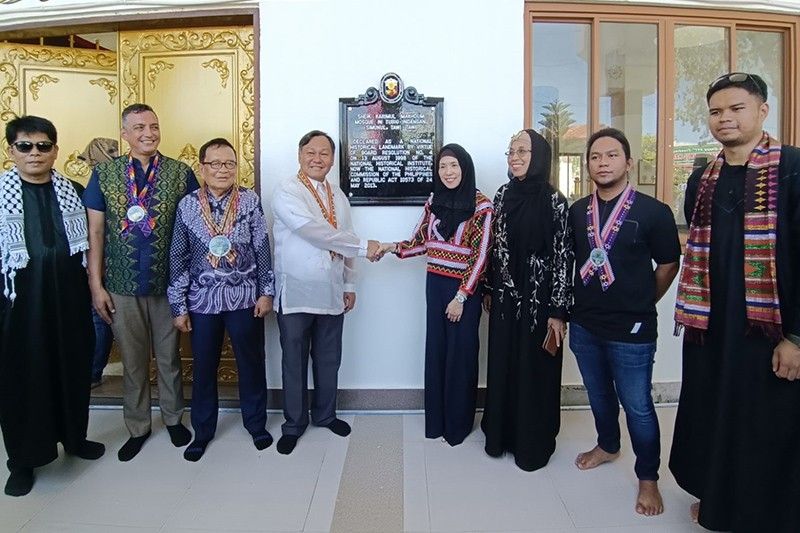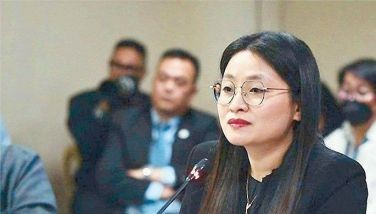Tawi-Tawi’s Sheik Karimul Makhdum Mosque marker unveiled

COTABATO CITY — Government officials unveiled on Sunday the historical marker of the Sheik Karimul Makhdum Mosque in the island Simunul town in Tawi-Tawi, the first ever Islamic worship site built in the country.
The mosque, located in Simunul’s Barangay Tubig Indangan, which is Bohe Indangan in the ethnic Samah vernacular, was built in 1380 by Sheik Karimul Makhdum, an Arab Islamic preacher who then introduced Islam in what are now Bangsamoro provinces of Tawi-Tawi and Sulu.
Local executives and division chiefs in the office of Tawi-Tawi Gov. Yshmael Sali said on Monday that the symbolic event was together officiated by National Historical Commission of the Philippines chairman Emmanuel Calairo, Budget Secretary Amenah Pangandaman, Vice Gov. Al-Syed Sali, Simunul Mayor Wasilah Abdurahman and DBM Undersecretaries Margaux Salcedo, Goddes Hope Libiran and Wilford Will Wong.
The Bangsamoro Autonomous Region in Muslim Mindanao was represented in Sunday’s event in Simunul by its trade and tourism minister, Abuamri Taddik, who is also a senior official of the Moro National Liberation Front.
BARMM’s local government minister, Naguib Sinarimbo, who is spokesperson of the autonomous regional government, said that they were elated over the NHCP’s move to set up an iconic marker in the mosque, now a historical landmark.
Tawi-Tawi is one of the six provinces in BARMM, that also covers Maguindanao del Norte, Maguindanao del Sur, Lanao del Sur, Basilan, Sulu and Tawi-Tawi and the cities of Lamitan, Cotabato and Marawi.
Islam was first propagated in the 14th century in what are now Maguindanao del Sur, Maguindanao del Norte and Lanao del Sur, all in mainland Mindanao, by Shariff Mohammad Kabunsuan, who was from a royal clan in Johore, now a state in Malaysia.
Like Makhdum, Kabunsuan established worship sites in different areas in mainland Mindanao and organized communities governed by Islamic Sharia laws.
According to contemporary Moro historians, both foreign missionaries preached fraternalism and interfaith solidarity among indigenous groups, taught local traders honest, or “clean” commerce and trade.
- Latest
- Trending





























